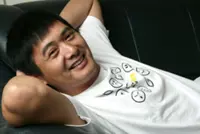Chinese drug makers could face squeezed profit margins, as US President Donald Trump is expected to press ahead with tariffs on pharmaceuticals despite his pledge to slash domestic prices, analysts said.
Trump signed an executive order on Monday to lower US drug prices to align with levels paid in other countries. But duties on imports are likely to remain – even at the risk of increased costs – as Washington seeks to reshore manufacturing and reduce dependence on supply chains in countries like China, according to health experts interviewed by the Post.
“[The] implementation of tariffs aims to bring manufacturing back to the US with higher costs and drug prices, which is contradictory to the drug price reduction policy,” said Vicky Zhu, a healthcare specialist at investment bank CMBC International.
Do you have questions about the biggest topics and trends from around the world? Get the answers with SCMP Knowledge, our new platform of curated content with explainers, FAQs, analyses and infographics brought to you by our award-winning team.
However, she said the duties would probably be “much milder than expected”.
“The generic drug manufacturers in the US have narrow margins, and therefore cannot bear more costs arising from extra tariffs. In that case, they will pass on the cost to Chinese suppliers.”
Firms in China could be forced to bear the financial burden, or “shift capacity to Southeast Asian countries such as Thailand and Vietnam”, she added.
Trump threatened to impose duties on pharmaceuticals in early April, just days after announcing sweeping “reciprocal” tariffs on most countries. The sector has typically been exempt from such measures under a 1995 World Trade Organisation (WTO) agreement.
The move has prompted several global drug companies, such as Roche and Novartis, to pledge manufacturing investments in the United States.
“The Trump administration has been keen on reducing its reliance on China for crucial active pharmaceutical ingredients, particularly antibiotics and vitamins,” said Shivani Singh, healthcare industry analyst at the Economist Intelligence Unit.
China provides US firms with 90 per cent of the active pharmaceutical ingredients (APIs) – the raw materials needed to make drugs – that are used in antibiotics, according to a report last month by Exiger, a supply chain analytics firm.
The report’s authors described the situation as an “acute dependency that could be exploited in a geopolitical crisis”.
The threat of US tariffs on pharmaceutical imports remains high, with duties likely targeted on a product-by-product basis following an assessment of supply chains, American capabilities and price impacts, Singh said.
“Chinese suppliers exporting pharmaceutical goods or APIs to the US will likely feel pressured to cut their prices, too, in order to stay competitive, potentially hurting their margins and profit.”
China’s pharmaceutical exports to the United States – including both medicine and medical devices – reached US$19.05 billion in 2024, according to the China Chamber of Commerce for the Import and Export of Medicines and Health Products.
That figure accounted for 17.64 per cent of the country’s total pharmaceutical exports, making the US the top market for Chinese firms selling overseas.
In the first quarter of this year, the US remained China’s top single market for the sector. Exports to the US rose 9.6 per cent year on year to US$4.64 billion, accounting for 17.42 per cent of total exports in the sector.
China’s chemicals industry is globally competitive with strong base chemicals, a complete industrial chain and lower manufacturing costs, while API manufacturers are also expanding into downstream intermediates and generics, Zhu said.
“If tariffs are imposed, it could be a hurdle for the downstream expansion of Chinese API manufacturers.”
More from South China Morning Post:
- ‘Extreme stress’: how the trade war caught one of China’s richest provinces off guard
- China’s factories race to ship goods amid US trade truce: ‘everyone’s rushing’
- China expected to ramp up soybean imports from Brazil, reduce US reliance amid trade war
- As unswerving superpowers meet unsustainable tariffs, Yao Yang breaks down the paradox
- US-China trade war: Trump calls day one of crunch talks in Geneva ‘a very good meeting’
For the latest news from the South China Morning Post download our mobile app. Copyright 2025.





